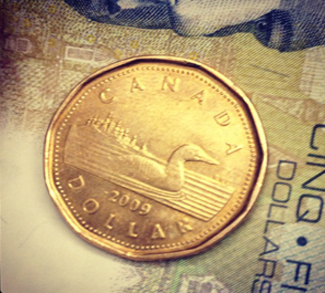Summary
A report revealing high-level meetings to de-link oil from the U.S. dollar has gold spiking and financial analysts buzzing. It begs the question: how long does the U.S. dollar really have as global reserve currency?
Analysis
Robert Fisk’s article in this week’s Independent details meetings between oil-producing countries and major oil importers such as Japan and China. According to Fisk, these secretive meetings produced a plan to begin trading oil using a basket of currencies by 2018. Under the plan, gold is to serve as not only a part of the currency basket, but also a crutch with which to transition away from the U.S. dollar.
While the language in Fisk’s article makes for a thrilling read, complete with secretive cabals and a plot to undermine U.S. economic hegemony, it is merely indicative of the wider trend of declining confidence in the U.S. dollar as a reserve currency.
The global credit crunch hammered home the reality that America’s economic supremacy, and by extension the U.S. dollar’s status as global reserve currency, is not permanent. Now the question becomes whether this transition will take place over the next decade or over several decades.
The meeting described in Fisk’s article is not the only evidence to suggest that the U.S. dollar will be replaced sooner rather than later.
Calls from the UN and other rising powers to adopt a global currency are becoming more and more frequent, and the IMF’s Special Drawing Rights (SDR) – a basket of international currencies – is often cited as a possible candidate. What was formerly just rhetoric recently became reality when BRIC countries snatched up $70 billion worth of SDR bond offerings from the IMF, providing the organization with much-needed finance while diversifying their currency reserves away from the U.S. dollar.
BRIC countries have also taken steps to curb their accumulation of U.S. dollar reserves by drafting agreements to settle trade accounts in other currencies. Brazil and China are working towards an agreement to conduct bilateral trade using their own currencies. This deal would likely emulate a similar agreement between Brazil and Argentina.
Moves by BRIC countries to diversify reserve holdings away from the U.S. dollar, while important, are proceeding on a slow and incremental basis. Unless something happens to increase the pace – oil not being priced in dollars, perhaps – the process of replacing the U.S. dollar as global reserve currency will play out over the course of several decades.
There are other factors indicating a long goodbye for the dollar, most important of which being the question of what will replace it.
SDRs could work in theory, but the fact that they’re underwritten by the IMF doesn’t instill confidence, a prerequisite for any new reserve currency. SDRs are like alternative energy, a good way to diversify your overall portfolio, but difficult to rely on exclusively.
Further hampering the possibility of SDRs serving as a viable replacement is the fact that the Chinese yuan isn’t freely convertible. This also complicates negotiations over any local currencies trade agreement between China and Brazil. Furthermore, it’s likely that the yuan will remain artificially low for as long as possible, as Chinese concerns over economic growth and political stability trump the prestige points derived from chipping away at the dollar’s global status.
There’s also the important consideration that BRIC countries are still very dollar-rich, and any full scale attack on the U.S. dollar will fast deflate the value of existing foreign currency reserves.
In the absence of an easy replacement for the greenback, Obama administration policies take on a crucial light in determining the timetable of the U.S. dollar’s decline. If America’s $1.4 trillion budget deficit is drastically reduced over the next few years, then the process will unfold over several decades. If however the deficit remains constant or grows, then America’s creditors will push ahead with plans for a replacement reserve currency, no matter how painful or uncertain such an effort would be.
Zachary Fillingham is a contributor to Geopoliticalmonitor.com



